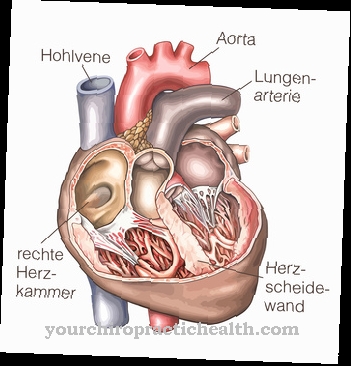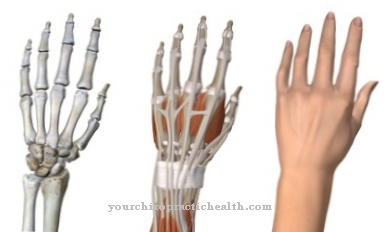The episodic memory makes people who they are. Disturbances and the complete failure of this memory function have profound effects on coping with everyday life.
What is episodic memory?

The episodic memory belongs to the so-called declarative long-term memory. It is localized in the hippocampus, temporal and frontal lobes. All individual experiences and situations are stored in this. With the help of episodic memory, a person is able to travel into the individual past and plan his future.
All events that a person makes in the course of their life are stored there in their exact situational context and can - if there is no impairment of the episodic memory - be called up in this form. As people get older, the ability to remember personal experiences decreases continuously.
The episodic memory needs information from the semantic memory for optimal functioning. General knowledge, factual knowledge and general experience are stored there.
It is characteristic of the functioning of episodic memory that most neural connections are only created for a short time, unless the person concerned can associate them with personal experiences and experiences of his past.
The memory of previous events is mostly triggered by key stimuli from the personal environment (music, smells, certain people, etc.) or from within (emotions). The contents stored in the episodic memory are sorted by the feelings of the person concerned according to their value. The better the general memory performance, the more information can also be retrieved from episodic memory.
Function & task
The episodic memory has an identity-forming effect, since the individual only becomes the personality he is through his functioning. Hence it will autobiographical memory called. With the help of the personal experiences and experiences stored in himself, the individual can evaluate and classify what is currently experienced.
What is stored in the episodic memory therefore also has a behavior-modifying effect: If the event is assessed negatively, the person concerned draws different conclusions from it than if he would assess it positively. For example, memories of bad experiences lead to avoiding situations that are similar to what was originally experienced.The person "learns" from past experiences.
Personal experiences from earlier times also enable the individual to imagine certain experiences in the future and to forge future plans. Past situations that have a positive connotation are always judged positively later: A piece of music that has been linked to an exhilarating experience will evoke similar feelings of happiness in 20 years. It can therefore have an additional motivating and mood-enhancing effect.
In addition, episodic memory helps to remember what is forgotten or lost. By going back to the situation in which they lost the item, they usually find it again (for example, the lost wallet that is found on going back to the store).
Objective content that is interesting for the individual and can be linked to their own experiences is also stored in the autobiographical memory: a reader will be able to remember book content that is interesting for him for many years to come if he visualizes the situation in which he is read the book then.
The episodic memory can also have a socially connecting function. Personal memories can be communicated to other people and thus strengthen human relationships, which in turn is stored as a positive experience in autobiographical memory. The opposite experience is of course also possible.
You can find your medication here
➔ Medicines against memory disorders and forgetfulnessIllnesses & ailments
Episodic memory, like other memory functions, can be impaired by accidents, illnesses, psychological stress, stress and the aging process. People with a bad memory can only insufficiently use the contents stored in their autobiographical memory. The current experience is not connected at all, incorrectly or only insufficiently with the corresponding experiences of the past.
Concentration disorders also have a negative effect on episodic memory. The same applies to organic brain disorders that affect the hippocampus, for example. It is characteristic of this type of memory disorder that the semantic memory works properly, but the episodic memory no longer works. New experiences can no longer be associated with already made and stored permanently.
In partial retrograde amnesia, it is preferred to forget the contents that are close to the point in time at which the brain was damaged. If there is global amnesia, personal information that was long ago is also affected. Current events and important experiences can then no longer be stored in the episodic memory. Temporary global amnesia (TGA) is usually limited to one to 24 hours. It is triggered by extreme psychological or physical stress. The person concerned has no orientation in space and time.
In psychogenic amnesia, only one specific event from the individual past is no longer accessible. It is usually caused by a psychological trauma that suppresses the highly stressful experience.
Impairments to the autobiographical memory can be caused by traumatic brain injury, stress, epileptic seizures, encephalitis, meningitis, brain tumors, migraines, stroke, dementia, Alzheimer's disease, poisoning, circulatory disorders in the brain, mental trauma, psychotropic drugs and alcohol abuse. They are treated by first eliminating the underlying disease. This can be done with the help of drug treatment, psychotherapy, relaxation exercises (autogenic training, yoga, progressive muscle relaxation) and special memory training. Changing the body to a basic diet can also have a positive effect on the performance of episodic memory.
























.jpg)



